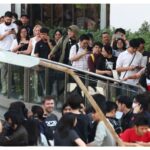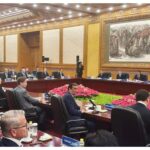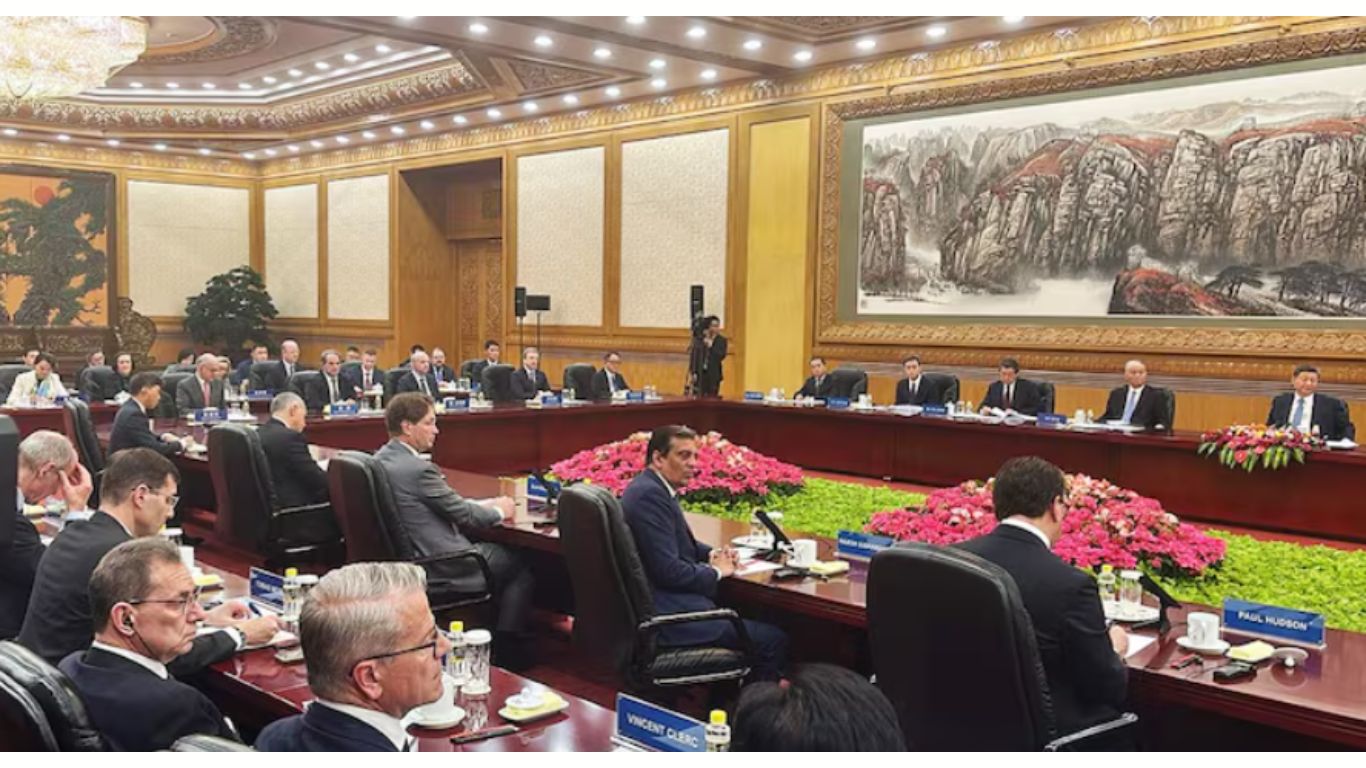On Friday morning, Xi met with officials from multinational corporations and business organizations at the Great Hall of the People.
In an attempt to improve investor morale as growing tariffs increase economic and trade uncertainties, Chinese President Xi Jinping met with a group of world business executives in Beijing.
Without providing further details, the official Xinhua News Agency said Friday morning that Xi met with representatives of foreign commercial and industrial companies at the Great Hall of the People.
Among them are Paul Hudson of Sanofi SA, Pascal Soriot of AstraZeneca PLC, Miguel Angel López Borrego of ThyssenKrupp AG, Rajesh Subramaniam of FedEx Corp, and Bill Winters of Standard Chartered PLC. Finance Minister Lan Fo’an, Commerce Minister Wang Wentao, and Foreign Minister Wang Yi are among the Chinese officials present.
Following the discussion, Xi stated in front of reporters that the Chinese government will “study and consider” the opinions expressed by seven business representatives.
Xi commended the guests for their contributions to China’s development and employment creation, saying, “All of you are welcome to keep your lines of communication with us.” “International companies play a significant role in China’s modernization.”
The appeal of investing in the second-largest economy in the world has been harmed by slowing economic growth and rising geopolitical tensions; last year, inward investment fell to its lowest level in more than three decades.
Next month, when the US is expected to finish evaluating Beijing’s adherence to the phase-one trade agreement signed during US President Donald Trump’s first term and impose reciprocal duties worldwide, there might be more challenges.
As the government aims for an ambitious growth target of roughly 5% this year, Chinese Premier Li Qiang stated on Sunday that the nation is ready for “shocks that exceed expectations.” If tariffs spike, economists predict Beijing would have to unleash trillions of yuan in stimulus to meet that target.
China’s engagement with prominent business leaders highlights the country’s business-friendly approach, which contrasts with Trump’s more protectionist “America First” objectives.
Beijing is also attempting to portray itself as a proponent of private entrepreneurship, as evidenced by Xi’s high-profile meeting with businesspeople last month, including Jack Ma, co-founder of Alibaba Group Holding Ltd.
For the annual China Development Forum and the Boao Forum for Asia, which ends on Friday, numerous CEOs from around the world have travelled to China. Although Xi broke with tradition last year by meeting a group of US businesspeople, the meeting is an improvement over previous years when China’s No. 2 official met executives on the sidelines of the CDF.
In what has been viewed as a first step towards arranging a summit between Xi and Trump, Republican Senator Steve Daines, a member of the Foreign Relations Committee, met with Premier Li and other Chinese leaders earlier this week.
Deteriorating bilateral relations have already ensnared a number of US companies in the crossfire. Walmart Inc. officials were called by Chinese authorities this month due to allegations that the company requested suppliers to cover the extra costs of US tariffs. Prior to the implementation of US tariffs, Beijing placed US genome sequencing business Illumina Inc. and Calvin Klein’s owner PVH Corp. on a so-called blacklist of organizations.










